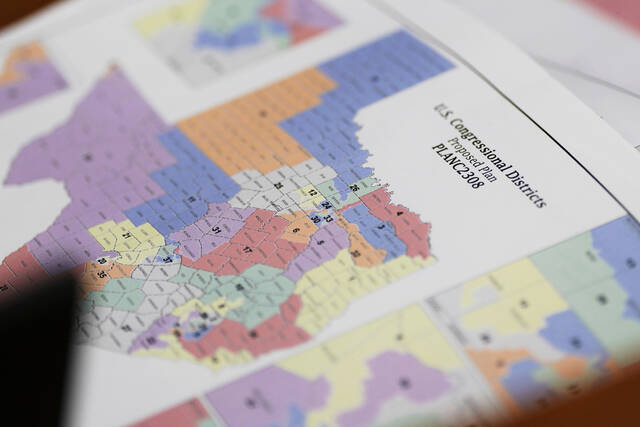https://triblive.com/opinion/lori-falce-texas-redistricting-rips-up-the-rules/
Lori Falce: Texas redistricting rips up the rules

To play a game, you have to have rules.
Even children know you can’t change where base is in the middle of a game of tag. You don’t change the number of spaces a pawn can move in chess. You don’t push back the chains for a first down after the ball’s been snapped.
The rules are spelled out clearly ahead of time so everyone knows what to do — and if they don’t know, the rules are there to settle disputes.
And these rules don’t just exist for softball and Monopoly. They are part of the fabric of all our interactions. Rules govern how court cases proceed. As kids go back to school, they will get handbooks spelling out expectations and responsibilities.
Perhaps most important, rules are not just created by government. They exist for government. They delineate what government does, what it doesn’t do, what it can’t do and how it all happens.
So what’s up with Texas matters a lot right now.
The Texas state House wants to redistrict its congressional map, with hopes of drawing lines that would pack another five Republicans into its delegation. Right now, the state has 38 members in the House, with 25 of them from the GOP. The Republican majority in the state House believes they can get that up to 30. That would take the Democrats from 12 to seven — possibly eight. The 18th district is vacant but was held by Democrat Sylvester Turner until his death in March.
How is that a problem? Redistricting happens all the time, right?
No, not really. Redistricting happens by law after the census every 10 years. It can also happen if redistricting is challenged and a new map ordered by the court, like it did in Pennsylvania after the 2017 lawsuit by the League of Women Voters prompted a redrawn map that took effect in May 2018.
Texas redrew its map in 2021. However, leaders say there’s nothing that says they can only do that every 10 years. But why now?
“Because we can,” Texas Rep. Mitch Little told CNN this week.
Well, OK. But in the immortal words of Jeff Goldblum’s Dr. Ian Malcolm in “Jurassic Park,” they are “so preoccupied with whether or not they could, they didn’t stop to think if they should.”
Let’s be clear. They shouldn’t.
This is changing the rules in the second quarter. And it’s doing it not because they’re behind but because they want to run up the score.
In cases where a new law would change the rules on something like salaries or terms, etc., government often works ahead. Pass something today, and it will go into effect next year or in the next term. This keeps the rules steady during the game.
But Texas doesn’t want that. And it’s prompting response as Democratic-heavy states such as California are threatening to do the same. It’s also meant Democrats in the Texas state House have fled to avoid the vote on redistricting, which is also not in keeping with the game in play.
That means no rules will stay the same. It means, when you don’t like the score, you can just throw the game board and scatter the pieces.
That isn’t how we teach our children to play games. We should teach our elected officials that’s not how we expect them to play, either.
Copyright ©2026— Trib Total Media, LLC (TribLIVE.com)
